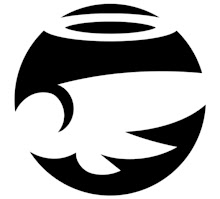Paul Gonzales
Humanities
Ms. Guerrero
March 3, 2009
Brainwash and Contradiction
A little girl, walking home from school, sees something unspeakable; the mother of her friend, lying on the floor, helpless, beaten by the Red Guards. Within a moment, she sees the son of the moment, relieved, she expects her friend to help his mother up. To her shocking surprise, he walks right passed. She then remembers the horror of breaking ties with parental units. Teary eyed, she then returns to her grandmother’s arms, scared and confused. The horrible truth is, the Chinese Cultural Revolution was not at all what the people were brainwashed to think. The downfall of this idea was the fact that it caused much confusion and caused the people to actually forget what the Cultural Revolution was about, which was equality.
Confusion is to understand as revolution is peace
The Horrors of the Cultural Revolution lasted for ten years. In those ten years, men woman and children alike have been brainwashed into thinking that the Cultural Revolution was a good thing. Propaganda, confusion, contradiction and brainwash were different ways to trick the citizens of China into believing in the power of Chairman Mao. Chairman Mao’s idea of getting rid of old traditions and capitalist ideas was needless to say, an attempt at keeping his political stance as dictator. He did not want anyone to interfere with his plans for domination.
The Cultural Revolution was a revolution in which basically abolished the thought of capitalism and the basic idea of post-revolutionary class struggle and was launched by a man named Mao Zidong in year 1966 (Jiang,120). Before Communism, there was a class struggle that depicted whether or not you were wealthy in society; basically the rich were rich and the poor were poor, but when the Chinese Cultural Revolution came into play, class struggle was of no issue, and basically made everyone in China of equal class structure.
Beautiful Disasters
The people began pointing out each other’s flaws and basically turned rightist families and revolutionary children against one another. On top of the family feuds with the government, things called “dai-zi-bao” were appearing everywhere around schools to halt the respect of teachers and the people who work for them. Names of teachers were splattered with red ink to show that the students had control of their future and that the teachers had no say in what was going to happen inside the child’s life. (Nien Chang, 35)
Disrespect for elders, un honorable acts, and yes, even breaking ties with parental units were all considered revolutionary acts of the Cultural Revolution. Though they all were inhumane things that a mere child would do, the most emotionally damaging act of revolution would have to be mass criticism. Mass criticism is the act of a body of representatives in a certain area that define things as “fourolds”.
Fourolds were considered counter revolutionary and were burned and or trashed immediately. Ever since the fourolds were invented, not a single article or item was kept before the Cultural Revolution. In fact, all who kept such articles were considered counter revolutionists and were sent to “thought study” groups. (Jiang 195). Thought study groups were considered the most dishonorable thing in China you could ever go to. It clearly stated that those who attended such meetings were automatically considered enemies of the Cultural Revolution and were given one chance to “confess” what they have done wrong, even if they have done nothing to offend the revolution.
The Head Honcho Himself
At this point, you may be asking, “Who’s pulling the strings?” or “Who is enforcing what goes on around China?” There is one horrible, cold hearted answer. The Red guards. Red guards aren’t typical men in uniform enforcing whatever law the mayor puts out. China has children around the age of ten to fifteen working for the red guards! It’s a horrible thought, being ruled by someone who isn’t even as old as you. Though these red guards were young in age, the brainwashing of the Cultural Revolution gave these mere children the thought of authority. This revolution gave them the power to search, to obstruct personal privacy, and above all else, invade personal space. Red guards were often thought of as “Revolutions little enforcers”. This was true, though not entirely.
How would you feel if all that you knew of your homeland became a lie (Jiang 144)? And that you found out you were living a lie by a mere child wearing revolutionary clothing? Not that great, right? Imagine how the people of China felt. The people of China were scared to leave their own homes with the thought of rampaging pre-teens running around going through every person on your blocks houses looking for things that are “counter revolutionary”.
In conclusion, the Cultural Revolution created mass hysteria in China. Even though they now still have a dictator, I’m sure China would not make the same mistake of propaganda and contradiction again.
Works Cited
Nien Cheng, "Life and Death in Shanghai" (Grove, May 1987).
Jung Chang, Wild Swans: Three Daughters of China (New York: Simon & Schuster, 1991). Heng Liang Judith Shapiro, Son of the Revolution
Ji-Li-Jiang, Red Scarf Girl: A Memoir of the Cultural Revolution (New York: HarperCollins, 1997).
Thursday, April 23, 2009
Essay Completed !!
Posted by We sing ... We dance ... We steal things. at 1:23 PM
Subscribe to:
Post Comments (Atom)

0 comments:
Post a Comment